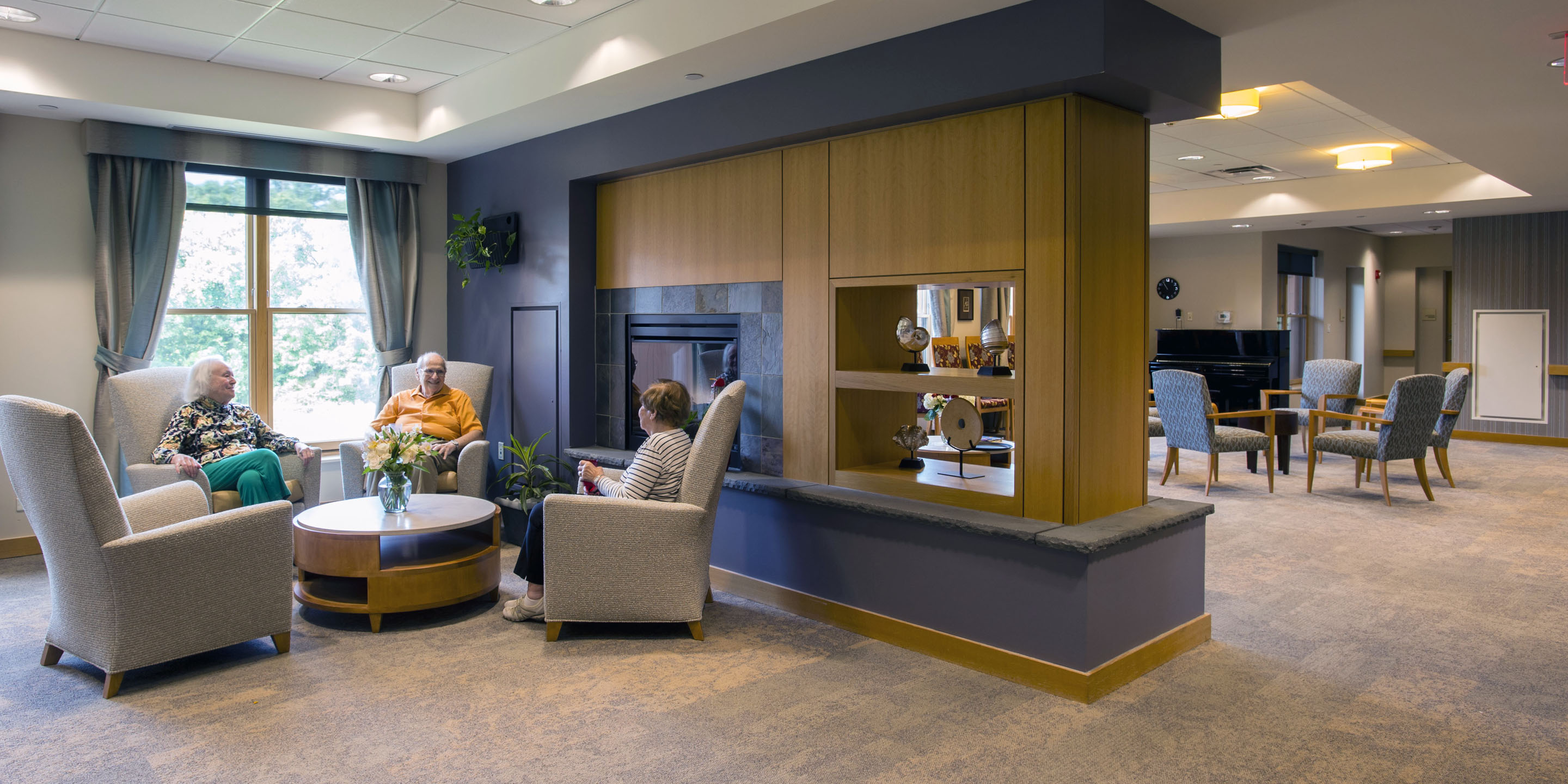Charlotte Memory Care: Quality Senior Citizen Living with Memory Care Knowledge
Charlotte Memory Care: Quality Senior Citizen Living with Memory Care Knowledge
Blog Article
Developing a Safe and Encouraging Atmosphere: In-Home Memory Care Basics
Developing a safe and caring environment for people calling for in-home memory care is extremely important to their wellness and quality of life. From ensuring safety and security within the living area to employing reliable communication techniques and applying memory-friendly design components, there are important parts that add to an all natural care approach. By concentrating on creating an encouraging community that deals with the special needs of those with memory problems, caregivers can dramatically improve the day-to-day experiences of their liked ones.

Safe Living Setting
Developing a hazard-free and protected living atmosphere is vital when offering in-home memory treatment for people with cognitive problems. Ensuring the safety of the private with memory loss is vital to protect against accidents and promote a sense of well-being.
Furthermore, it is very important to mount safety and security attributes such as grab bars in bathrooms and handrails along staircases to give support and prevent accidents. Additionally, using technology such as motion sensors and alarms can alert caregivers if the specific wanders or remains in distress. Developing a secure living atmosphere likewise includes executing techniques to avoid roaming, such as using door alarms or locks to restrict accessibility to harmful areas. By prioritizing safety and security actions and getting rid of prospective risks, caregivers can give a helpful and secure setting for people with cognitive disabilities receiving at home memory care.
Efficient Communication Methods
Executing customized communication approaches is vital in fostering significant communications with individuals with cognitive problems in the context of in-home memory care. Efficient interaction plays an important duty in producing an encouraging environment that improves the health and lifestyle for people with memory issues. When interacting with a person experiencing cognitive decline, it is very important to use easy and clear language, maintain a calmness and favorable tone, and provide aesthetic hints to help understanding.
One key method is to exercise active listening, showing compassion, perseverance, and respect during conversations. Non-verbal signs such as faces and body language can likewise assist share understanding and support. In addition, making use of reminiscence therapy by going over previous experiences or making use of songs and art can use lasting memories, sparking connections and stimulating interaction.
Additionally, including normal regimens and regular interaction patterns can give a feeling of knowledge and security for individuals with memory impairments. By implementing these communication strategies, caregivers can establish meaningful links and advertise a feeling of convenience and count on the at home memory care setting.
Memory-Friendly Design
Given the significance of creating an encouraging setting for people with memory problems through effective interaction approaches, the unification of memory-friendly style aspects in the home becomes essential in optimizing their everyday experiences and general well-being. Memory-friendly layout concentrates on enhancing safety, convenience, and self-reliance for individuals with cognitive impairments. Straightforward adjustments can make a their website considerable distinction, such as utilizing contrasting colors to boost exposure and decrease complication, integrating clear signs to assist navigation, and minimizing mess to avoid sensory overload.
Integrating familiar components from the individual's past, such as favorite things or personal images, can evoke favorable memories and create a feeling of familiarity. In addition, guaranteeing adequate illumination levels, setting up grab bars in bathrooms, and carrying out non-slip flooring can assist prevent falls and injuries. Developing a soothing and comforting environment with making use of familiar aromas, soft textures, and relaxed sounds can likewise advertise relaxation and decrease frustration. By integrating these memory-friendly style components, caregivers can supply a secure and supportive living space that allows people with memory concerns to maintain their self-reliance and lifestyle.
Daily Routine Planning
When developing a daily regimen for individuals with memory issues, mindful preparation is vital to support their cognitive function and overall health. Establishing a structured timetable can assist reduce confusion, anxiousness, and disorientation visit here typically experienced by those with memory disabilities.
Adaptability is key, as some days may need modifications based on the person's state of mind and power levels. Frequently examining and adjusting the day-to-day schedule will help ensure its effectiveness in promoting a positive and soothing setting for people with memory obstacles.
Assistance System Implementation
Establishing a robust network of supportive individuals plays a pivotal role in enhancing the quality of care and well-being for individuals requiring memory assistance. Relative, friends, healthcare specialists, and area sources can all add to producing a strong support system. Communication among these people is crucial to make certain that the demands of the specific with memory difficulties are satisfied efficiently.
Family participants are commonly the main caretakers and develop the backbone of the assistance system. They supply daily care, emotional support, and friendship. It is important for family participants to seek aid and break when needed to stop burnout and make certain the most effective possible look after their loved one.
Along with family assistance, involving health care professionals such as specialists, registered nurses, and doctors can supply specialized care and support. These specialists can provide useful understandings, medical guidance, and aid in managing the individual's condition.

Conclusion
In conclusion, producing a supportive and risk-free atmosphere for people with memory treatment demands is crucial for their well-being. By establishing a safe living environment, utilizing efficient communication techniques, integrating memory-friendly style aspects, intending everyday routines, and executing a strong support system, caregivers can help improve the lifestyle for those with memory loss. These important components collaborate to develop a nurturing and encouraging setting that advertises self-reliance and improves overall quality of life.
Creating a hazard-free and safe and secure living setting is vital when giving at home memory treatment for people with cognitive disabilities. By prioritizing safety and security actions and eliminating see here now prospective risks, caretakers can give a supportive and safe and secure atmosphere for individuals with cognitive problems obtaining in-home memory treatment.
Developing a robust network of encouraging individuals plays a pivotal duty in improving the quality of treatment and well-being for people needing memory support - Charlotte Memory Care. Interaction among these people is necessary to make sure that the needs of the specific with memory challenges are fulfilled efficiently

Report this page